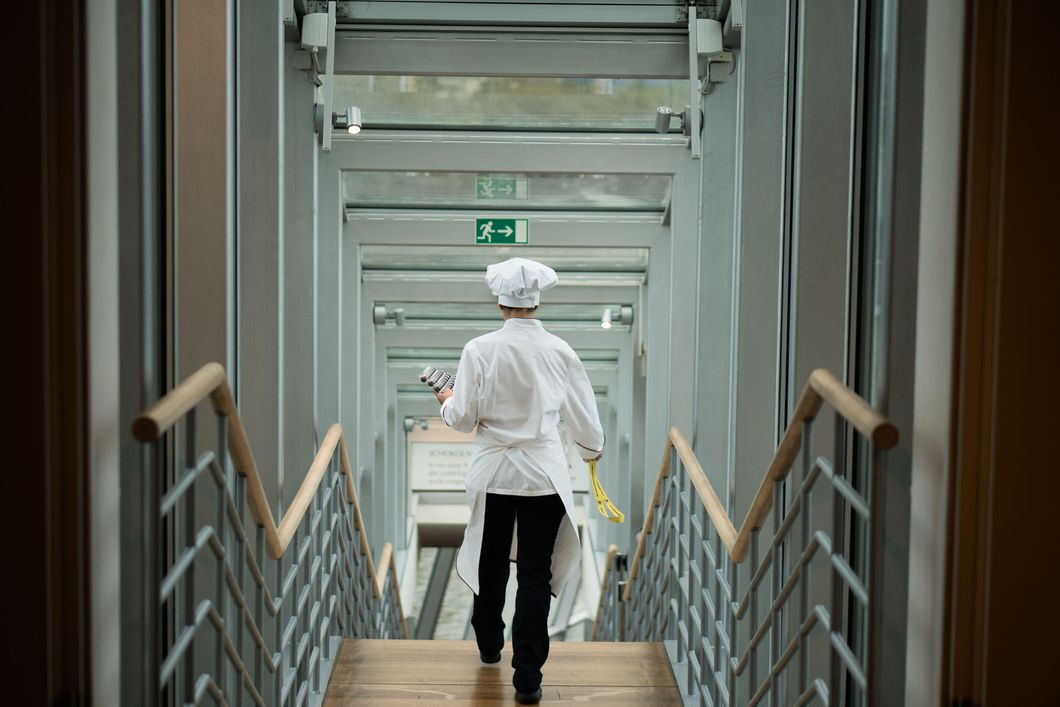On the third episode of Ugly Delicious, "Home Cooking," the host builds a personal bond with the audience. David Chang takes the audience into something different than the professional restaurants the show is known to film; his own home. He introduces his Korean-style cooking and how it influences his Thanksgiving Dinner, as well as a dinner he made for his wife: galbitang, a Korean short rib stew for his wife. The introduction of Korean-style cooking and his unfamiliar recipes set the precedent for the rest of the episode.
David Chang spends the rest of the episode comparing food from at-home cooking and at restaurants. He acknowledges that restaurant-cooking has to be to perfection and there is more pressure that comes along when cooking for customers, especially if you would like them to come back. At home, there is a type of authenticity put on the plate. At home-cooking is less stressful; yet the chef is still working as hard, but in a different way. For many families, food is a love language and the person cooking works hard for everyone because they want to make every individual is fed. David Chang expresses how home-cooked meals are perceived as a gift from someone who cares about you and a message filled with love. With nostalgia and a different perspective of what cooking means to an individual, this is when David Chang applies his ideals to a professional's style of cooking.
During the episode, David Chang explained his beliefs by advising that if a chef were to use techniques used for home-cooked meals or treated their food as if they were cooking for their family, then they would be at the peak of their career. Chang used his own career as an example by explaining how he always stuck to the professional techniques because that is what he thought was "right" in the culinary world. He believed these techniques would get him to be where he wanted to be, but quickly learned it did not fully express who he was as a person. As his career developed, Chang realized that he enjoyed food from his childhood more than the food that he would make at the above average restaurant. This led Chang to apply this into his restaurant and add more of the Korean techniques he learned from members of his family. If you were to ever visit Majordomo, you would recognize many Korean-homestyle meals in his menu.
The food that I've noticed help connect chefs with their hometowns are the food that originated from there or are extremely popular at that location. I believe having a strong attachment from food in your hometown comes from the culture the food expresses. For example, when I moved to Pennsylvania there was not a wide range of Mexican-style food. Chipotle was the closest place I would get from a taqueria, which is a food cart specialized in tacos. There are only professional restaurants that cook Mexican-style food, and it made me feel more homesick because I missed seeing taco trucks everywhere or the simple taquerias. Being from California, it was casual to see men walking around my street driving around a cart full of veggies, taco shells, and meats. This was when I realized how ridiculous that sounded when explaining it to native Pennsylvanians. This didn't make me feel divided with Pennsylvania, but it did make me more unified with California. Food has became more nostalgic in my opinion, which makes me feel more at home when I go visit California. This reminds me of the Social Identity Theory we had discussed in class. Knowing the differences of California and Pennsylvania, it didn't make me feel like a black sheep, but it gave me more insight in who I am and the culture that surrounded me for 18 years.





 mr and mrs potato head
StableDiffusion
mr and mrs potato head
StableDiffusion










